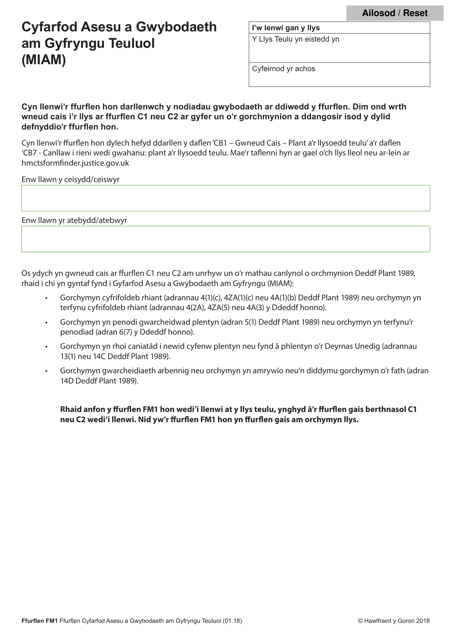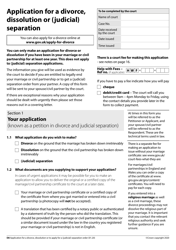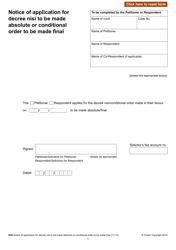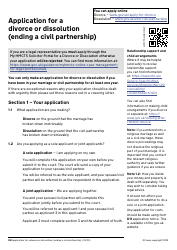Form FM1 Family Mediation Information and Assessment Meeting (Miam) - United Kingdom (Welsh)
Form FM1 Family Mediation Information and Assessment Meeting (MIAM) in the United Kingdom (Welsh) is used to provide information about the Family Mediation process and to assess whether mediation is suitable for resolving disputes relating to family matters. It is typically used in Wales to initiate the mediation process and inform individuals about their options for resolving family disputes outside of the court system. The form aims to encourage parties involved in family disputes to consider mediation as an alternative to litigation, promoting communication and agreement between the parties in a less adversarial manner.
The Form FM1 Family Mediation Information and Assessment Meeting (MIAM) in the United Kingdom (Welsh) can be filed by either party involved in a family law dispute, such as divorce or child custody matters. It is usually filed by the person initiating the legal proceedings, but the other party can also file it if they wish to pursue mediation.
FAQ
Q: What is FM1 form?
A: The FM1 form is the abbreviation for the Family Mediation Information and Assessment Meeting (MIAM) form. It is used in the United Kingdom specifically in Wales.
Q: What is the purpose of the FM1 form?
A: The FM1 form is used to provide information about family mediation and to confirm attendance for the mediation assessment meeting, which is a legal requirement for certain family law cases in Wales.
Q: What is family mediation?
A: Family mediation is a process where a neutral third party helps couples or families in conflict to negotiate and make decisions about their future, such as parenting arrangements, financial matters, or property division.
Q: Who needs to fill out the FM1 form?
A: If you are involved in certain family law cases in Wales, such as divorce or separation, and you wish to apply to the court for certain orders, you will need to fill out the FM1 form.
Q: What happens during a Family Mediation Information and Assessment Meeting (MIAM)?
A: During a MIAM, a mediator will provide information about the mediation process, discuss the issues at hand, and assess whether mediation is suitable for your situation. It is an opportunity to explore alternatives to court proceedings.
Q: Is attending a MIAM mandatory?
A: In certain family law cases in Wales, attending a MIAM is mandatory before you can apply to the court for certain orders, such as child arrangements orders or financial remedy orders. However, there are exceptions, such as cases involving domestic violence or urgency.
Q: Can I bring a support person to a MIAM?
A: Yes, you are generally allowed to bring a support person to a MIAM. This could be a friend, family member, or legal representative. However, it is best to inform the mediator in advance if you plan to bring someone with you.
Q: What are the benefits of family mediation?
A: Family mediation can provide several benefits, such as allowing you to retain control over the decision-making process, reducing conflict and hostility, being more cost-effective than court proceedings, and focusing on the best interests of any children involved.
Q: What if mediation is not successful?
A: If mediation is not successful in resolving the issues, or if it is not deemed suitable for your situation, you may proceed to court for a judge to make a decision on the matters at hand. However, mediation is often recommended as a first step to try and reach agreements outside of court.































